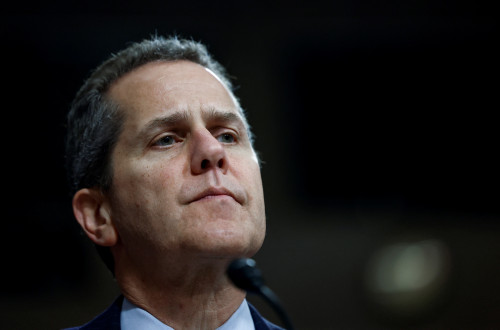(Reuters) -U.S. President Donald Trump’s trade policies will likely lift inflation, lower growth, and raise unemployment later this year, Federal Reserve Governor Michael Barr said, leaving policymakers with a potentially tricky decision on which problem to fight.
“The size and scope of the recent tariff increases are without modern precedent, we don’t know their final form, and it is too soon to know how they will affect the economy,” Barr said on Friday in remarks prepared for delivery to the Central Bank of Iceland.
But the risks are clear, he suggested.
“In my view, higher tariffs could lead to disruption to global supply chains and create persistent upward pressure on inflation,” he said, noting that it will take time for businesses to reroute distribution networks. Some suppliers, particularly small businesses, may not be able to adapt quickly enough and could fail, he said – adding to supply chain tangles.
“I am equally concerned that tariffs will lead to higher unemployment as the economy slows,” Barr said. “Thus, the (Fed) may be in a difficult position if we were to see both rising inflation and rising unemployment.”
Barr’s remarks largely echoed the steer from Fed Chair Jerome Powell on Wednesday, after the U.S. central bank held short-term borrowing costs steady and signaled a wait-and-see approach on rate-setting.
Monetary policy, Barr said, is “in a good position to adjust as conditions unfold,” given the strength of the economy and labor market before Trump announced sweeping tariffs on April 2.
Barr in February resigned from his role as the Fed’s vice chair for supervision to avert an open clash with Trump, who wants to reduce regulation in a broad range of industries. Appointed by President Joe Biden, Barr had pushed for stricter rules on banks during his tenure.
Trump has nominated Fed Governor Michelle Bowman, a frequent critic of Barr’s approach, to take over as the central bank’s regulatory chief.
In an unusual move, Barr stayed on as Fed governor, and Friday’s speech marks his first comments on monetary policy in about a year.
Trump has railed against the Fed’s decision not to cut rates and has repeatedly suggested he’d like to replace Powell, though most recently has said he has no intention of firing him.
(Reporting by Ann SaphirEditing by Shri Navaratnam)



